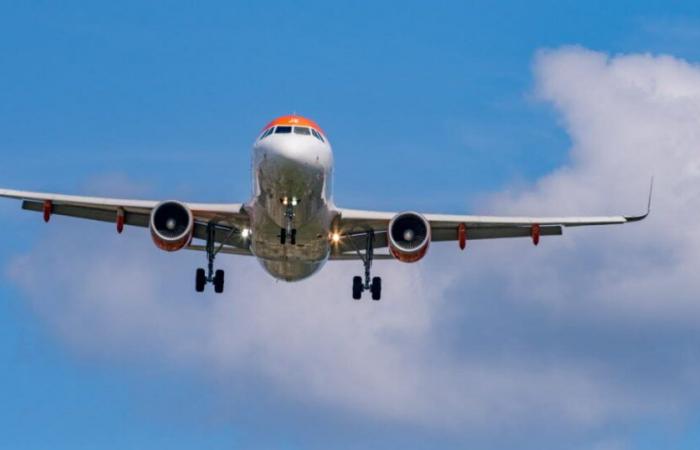Airline soon to be more expensive? To fight “against budgetary debt and climate debt”, the government has decided to increase taxes on plane tickets. It plans, as part of the 2025 budget, to triple the annual revenue from the solidarity tax on plane tickets (TSBA).
Established in 2006 to fight against AIDS in Africa, the TSBA, known as the “Chirac tax”, today helps support the least favored countries and finances transport infrastructure in France. It brings in 462 million euros each year but the government would like to raise an additional billion from next year.
From 9.5 to 40 euros in economy class
One of its amendments to the finance bill therefore plans to increase the amount of this tax, collected by airlines. Concretely, the TSBA applies to any air passenger taking off from France. Its amount (from 2.63 to 63.07 euros) differs depending on the destination and the class of the ticket (economy or business/first).
And it could well skyrocket, if the government wins its case or goes through 49.3 to pass the budget. Concretely, a trip to France or Europe in economy class will soon be subject to a TSBA of 9.50 euros (compared to 2.63 euros previously).
For long-haul flights, the increase in taxes will be felt even more: count on 32.50 euros in taxes more for a classic Paris-New York and 57 euros for a business or first class journey.
In total, the increase in the tax for commercial flights should generate a return of 850 million euros. The remaining 150 million will come from business aviation, via the creation of a special rate. The government is considering a tax ranging from 300 to 3,000 euros for each passenger leaving France on a private jet. But on this point, we will still have to wait for the latest decisions from the Minister of Transport, François Durovray, who said he wanted to “consolidate the model”.
Air France is already passing on the increase
The airline sector, “on the verge of becoming the most taxed in Europe” according to the National Federation of Aviation and its Trades (Fnam), did not wait, however, to speak out against this measure. The Gifas (Group of French aeronautics and space industries) fears a decline in “our tourist attractiveness” and “a sudden stop to the reindustrialization of the sector”. The trade union organizations speak of a “real suicide for the sector”, concerned about a future “distortion of competition” to the detriment of French companies and airports.
This unprecedented increase in the “Chirac tax” will also have “a direct impact on consumers’ purchasing power”, warns easyJet. It “will unfortunately be reflected in the price of the ticket”, confirms Bertrand Godinot, director of the low cost airline in France. The Air France-KLM group, which alone pays 30% of the overall amount of the TSBA, has also decided not to absorb this additional cost.
Especially since the new prices, which will come into force on 1is January, will also apply “to tickets already issued”, we are told. Since October 23, the prices of Air France, KLM and Transavia flights (planned for departure from France from 2025) therefore take the increase into account… even if it has not yet been voted on by Parliament.
For the planet or state revenue?
Enough to make consumers cringe. According to an Odoxa survey commissioned by easyJet
which we obtained, 57% of French people are opposed to an increase in the tax on plane tickets and 76% consider that it will have an impact on their vacations. Even 7 out of 10 think that the government took this measure to quickly replenish the state coffers, rather than for the planet. “It is not by increasing the price of plane tickets that the modal shift will take place but by lowering that of the train, purchasing power requires,” says Fnaut (National Federation of Transport User Associations).
Is France doing too much? This is the opinion of Gifas, which recalls that twenty countries of the European Union have “no specific taxation at national level on air transport”. But according to a recent note from T&E, which brings together NGOs campaigning for clean transport, “France is far behind Germany and the United Kingdom”: among our neighbors, “the tax on tickets for intra-European flights is almost six times higher,” assures the organization.
Survey carried out from October 18 to 21 among a sample of 1,005 French people aged 18 and over representative of the population.
France






